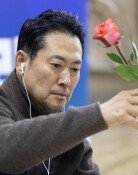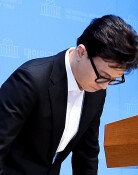Workplace discrimination against women still serious
Workplace discrimination against women still serious
Posted March. 08, 2001 19:29,
An assessment of current working conditions for women by a U.N. labor group shows that workplace discrimination against Korean women is among the world`s worst. In a report released to mark Women`s Day, the International Labor Organization (ILO) said that the ratio of women to men in the national legislature, high-ranking government posts and executive positions at major enterprises in Korea was among the lowest in the world.
According to the Human Development Index 2000, published by the United Nations Development Program (UNDP) last year, measurements of political and economic participation by women and gender equality in the decision-making process, among other areas, showed that Korea ranked 63rd among the 70 nations surveyed. Notably, the status of Korean women in these areas was the lowest among non-Islamic nations, where sex discrimination is built into the religious system.
Both international and Korean studies have shown that women in Korea face discrimination in terms of wages, job security, welfare programs, promotions and vacations. According to a survey conducted by the Labor Ministry, in workplaces with more than 10 people, 36.8 percent of the total are women, yet only 4.8 percent of the female employees are section chiefs and a mere 2.7 percent are division chiefs. In the major enterprises, the same is true, as women employees are typically given little chance of holding key posts and promotions are much slower than those of male workers who were hired at the same time.
The nation has so far taken all possible legal steps to ban discrimination against women. Nonetheless, even if legal provisions are further revised, the laws cannot be effective unless men change the way of their thinking.
The existing male-centered office culture all but assures that discrimination will continue to exist. Male dominance in the workplace is as much a part of the Korean work culture as the viewpoint that the quantity of work is more important than the quality and that dining together after hours is an extension of office work.
Since the 1997 economic crisis, the government has been hell-bent on curbing the jobless rate while paying little attention to the issue of atypical employees. Since women have for decades been limited to the sales and services areas, some 70.5 percent of all women workers are temporary employees. It is a matter of simple justice that women should receive equal pay for equal work.
It is well known among women that if they complain about unfair treatment in the workplace, they run the risk of losing their jobs. In this regard, labor authorities need to introduce special countermeasures. There are reports that in countries where women`s rights are well protected, not only does gender discrimination drop but corruption declines and the economy grows. For the sound development of Korean society, discrimination against women must be wiped out.






![[김순덕의 도발] ‘李부터 연임’ 개헌, 이 대통령은 가능성을 말했다](https://dimg.donga.com/c/138/175/90/1/wps/NEWS/IMAGE/2026/01/16/133172656.1.jpg)
